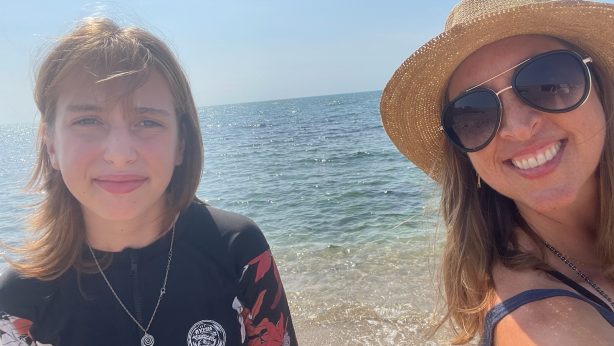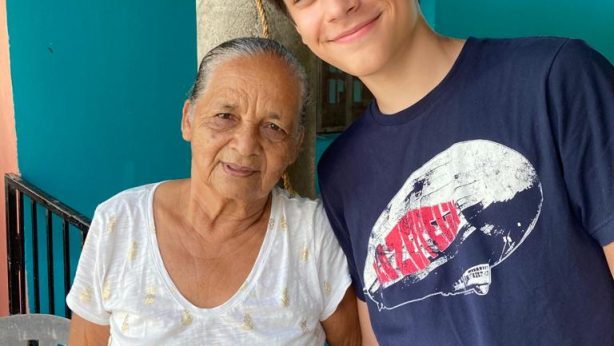Debunking Microfinance Myths: Why It Works in Poverty
Microfinance can be a tad bit confusing when you first hear about it. In conceptual terms, microfinance means providing small loans of $25-$500 to individuals living in poverty in order to help them generate a means of income through creating and managing a business. For those who live in poverty, it is extremely difficult to qualify for a loan from traditional institutions and banks due to unreasonably high interest rates and require collateral, meaning the bank can seize one’s assets if the loan fails to be repaid. The microfinance loans we offer have significantly lower interest rates than typical banks and credit unions to benefit the client. Over time, an individual can manage a sustainable business in order to achieve a better quality of life, lifting themselves and their families out of poverty. Adelante Foundation is a not-for-profit microfinance institution based on the Grameen Bank methodology, which was established by social entrepreneur Muhammad Yunus. Below are some common misconceptions about microfinance that we hope can be cleared up.
1) Putting the already poor into debt is a bad idea.
In Honduras, over 60% of the population lives in poverty, with the majority living in rural areas. A lack of employment opportunities in rural areas has been a major driving force behind the country’s high level of emigration. Not only are families living in poverty already at a disadvantage in life, but they are severely hindered in their resources to jumpstart a business they are extremely passionate about and could lead to their journey out of poverty. Without the seed capital to get their business on the ground, dreams don’t turn into a reality and they remain stuck in a cycle of poverty for generations. By providing small loans, we are providing opportunities for sustainable employment, income security, and economic growth. At Adelante, we consistently see a 97% repayment rate with our clients. We understand cultivating and managing a successful business requires patience. The results speak for themselves as we have witnessed a numerous amount of success stories of clients being able to put more meals on the table, send their children to school as the first in the family, and even expand a business across borders all the way to the United States.
2) Throwing money at the problem doesn’t help make it better.
Microfinance provides an opportunity and access to credit that would have otherwise been near impossible to obtain, especially for a woman living in poverty. Microfinance is not a charity. With charities, some problems can arise such as dependency and accountability of money on both the recipient and the giver. These problems are eliminated with microfinance by using credit for opportunity, empowerment, and sustainable income. On its own, microfinance is not enough to generate positive results. Since the majority of our clients have less than a 6th grade education, we find that when credits are paired with education, mentorship, and ongoing support is when we can see lasting and transformative change. Our credit officers are highly trained in emotional intelligence, meaning they use emotional information to guide thinking and behavior which is necessary and useful in interacting with our clients. They are also thoroughly trained in presenting educational workshops with topics ranging from ‘The Art of Selling’ to ‘How To Manage A Savings Account’. Adelante also offers our clients a 24/7 customer service phone line for support. Since our establishment in 2000, we have attended and served about 66,000 clients.
3) There’s little accountability for borrowers.
Adelante Foundation is a Grameen Bank replica which means that our model is based off Muhammad Yunus’ Group Loan methodology. If a woman is interested in partnering with Adelante, she must first create a group of women who are interested in doing the same or join an existing Adelante group. The groups range from 3-8 individuals whom all serve as each other’s collateral and together, they are responsible for repayments as a whole. This keeps one another accountable because it creates social pressure among the group, which acts as a more effective substitute to loan collateral. For example, if a woman happens to be late on one of her payments, the other women in the group have to pay for her, or else everyone’s credit history will hurt. Therefore, there is an underlying social obligation not only to Adelante, but among a woman’s peers as well. Once a woman has demonstrated exemplary repayment records and business growth, she is permitted to qualify for more loan products such as an Individual Loan, Home Improvement Loan, or the Education Loan as well as the opportunity to earn lower interest rates. Adelante continues to see a consistent 96% – 97% repayment rate from our clients. It is also worthy to note we take into consideration each client if repayment issues arise. We identify and tackle the root of the problem, then develop a plan of action that best resolves the issue, which can be refinancing the loan, restructuring the business plan, modifying the budget, and more. Our client’s financial security is one of our main priorities and we aim to avoid over-debting them by taking careful precautions.
4) Microcredit is the end-all be-all solution to poverty.
Microfinance is all about providing people living in poverty with a hand up, but is by no means the end-all be-all solution to poverty. While microcredit has proven to be an effective way to break the cycle of poverty, it is not the only solution to eliminating poverty worldwide. Poverty comes with many challenges including education, health, and youth development. Microfinance is only one of many solutions that addresses economic development. Regardless, Adelante Foundation has been using microfinance to empower women and eliminate poverty for over 15 years. Together, we can work towards a future where no one lives in poverty.
Sources:
http://www.theatlantic.com/business/archive/2011/02/5-myths-about-microcredit/71011/
http://www.microfinancingafrica.org/2015/02/07/busting-the-myths-of-microfinance/
http://www.ruralpovertyportal.org/country/home/tags/honduras


